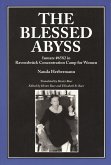
23,95 €
Sofort per Download lieferbar

Broschiertes Buch
Schutzhäftling Nr. 6582 im Frauenkonzentrationslager Ravensbrück
1., Aufl.
2002
Plöger
Broschiertes Buch
Inmate #6582 in Ravensbrück Concentration Camp for Women
20. Juli 2004
Wayne State University Press
Ähnliche Artikel

12,95 €
Sofort per Download lieferbar

24,95 €
Sofort per Download lieferbar

14,95 €
Sofort per Download lieferbar

18,95 €
Sofort per Download lieferbar

Statt 14,99 €**
2,99 €
**Preis der gedruckten Ausgabe (Broschiertes Buch)
inkl. MwSt. und vom Verlag festgesetzt.
Sofort per Download lieferbar

21,95 €
Sofort per Download lieferbar

14,00 €
inkl. MwSt. und vom Verlag festgesetzt.
Sofort per Download lieferbar
eBook, PDF
1. März 2012
Zwiebelzwerg Verlag

Statt 19,99 €**
15,99 €
**Preis der gedruckten Ausgabe (Gebundenes Buch)
inkl. MwSt. und vom Verlag festgesetzt.
Sofort per Download lieferbar

Statt 14,99 €**
11,99 €
**Preis der gedruckten Ausgabe (Broschiertes Buch)
inkl. MwSt. und vom Verlag festgesetzt.
Sofort per Download lieferbar

Statt 16,99 €**
12,99 €
**Preis der gedruckten Ausgabe (Gebundenes Buch)
inkl. MwSt. und vom Verlag festgesetzt.
Sofort per Download lieferbar
Ähnlichkeitssuche: Fact®Finder von OMIKRON
